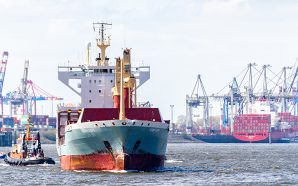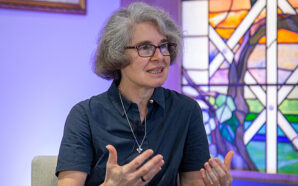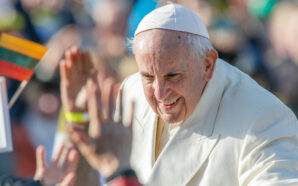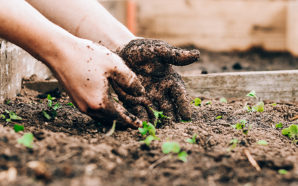Pope Francis prays the ‘Our Father’ prayer in Bucharest’s new Orthodox People’s Salvation Cathedral.
The ecumenical dimension of Pope Francis’ visit to Romania was highlighted in Bucharest Friday, by his meeting with the Patriarch of Romania’s Orthodox Church, followed by an encounter with its Permanent Synod, and the recitation of the Lord’s Prayer in the city’s new Orthodox Cathedral.
The Pope is on a three-day apostolic visit to the predominantly Orthodox Balkan State.
Addressing the congregation in the monumental Orthodox People’s Salvation Cathedral, Pope Francis said he wished to share some thoughts in preparation for the recitation of the ‘Our Father’ prayer.
‘Our Father’
He went on to reflect briefly on the words and implorations that run through the prayer beginning with how each time we say “Our Father” we state that the word Father cannot stand on its own, apart from Our.
The Pope said we are invited to make my become our, as we ask the Lord to help us to take our brother or sister’s lives seriously, to make their history our history, never judging them for their actions and their limitations, but welcoming them as His son or daughter: never forgetting the gift of the other person.
‘Who art in heaven’
We implore the Father, the Pope explained, who art in heaven, a heaven he explained, that embraces all, in which the Father makes the sun rise on the good and the evil, on the just and the unjust.
With this imploration, he said, we ask for the peace and harmony that here on earth we have failed to preserve.
‘Hallow your name’
Hallow your name, the Pope continued, refers to the fact that we wish to ‘hallow’ the Father’s name placing it at the heart of all we do.
“May your name, Lord, and not ours, be the one that moves and awakens in us the exercise of charity,” he said, remarking that so often in prayer we ask for gifts and list requests, forgetting that the first thing we should do is praise His name, adore Him, and acknowledge, in the brother or sister whom He has placed at our side, a living image of the Lord himself.
“In the midst of all those passing things in which we are so caught up, help us, Father, to seek what truly lasts: your presence and that of our brother or sister,” he said.
‘Your kingdom come’
Pope Francis noted that we wait in expectation for God’s kingdom to come as we see that the workings of this world do not favour it, organised as they are around money, personal interests and power.
With this imploration, he explained, we plead for the Father’s help to believe in what we pray for: to give up the comfortable security of power, the deceptive allure of worldliness, the vain presumption of our own self-sufficiency, the hypocrisy of cultivating appearances.
‘Thy will be done’
Thy will be done is a request that God’s will – not ours – be done, in the sense, the Pope said, that we need to broaden our horizons, “lest we place our own limits” on God’s “merciful, salvific will that wishes to embrace everyone.”
‘Our daily bread’
Turning to the bread we ask for in the prayer, Pope Francis explained that it is God who is the bread of life “that makes us realise that we are beloved sons and daughters, and makes us feel no longer isolated and orphaned.”
He is also “the bread of service, broken to serve us, and asking us in turn to serve one another,” he said.
And, he continued, we ask also “for the bread of memory, that is the grace to nurture the shared roots of our Christian identity”, which he said is particularly indispensable in a time in which – especially the young – “tend to feel rootless amid the uncertainties of life, and incapable of building their lives on a solid foundation.”
May that bread, he said, that is sown, cultivated and harvested, inspire us to be patient cultivators of communion, “without suspicion or reserve, without pressuring or demanding uniformity, in the fraternal joy of a reconciled diversity.”
The Pope also mentioned that “the bread we ask today is also the bread of which so many people today are lacking, while a few have more than enough.”
“The Our Father,” he said, “is a prayer that leaves us troubled and crying out in protest against the famine of love in our time, against individualism and indifference.
‘Trespasses, forgiveness, evil, temptation’
Pope Francis highlighted some of the other key words in the prayer noting that it takes courage to ask that our trespasses be forgiven, because it means that we must forgive the debts that others have incurred in our regard.
Thus, he said, here we are asking the Lord to give us that strength, to leave the past behind, to not yield to fear, to not to see openness as a threat.
And, he concluded, when the evil that is in our heart makes us feel the temptation to turn our back on others, we ask the Father, to help us “recognise in every one of our brothers and sisters a source of support on our common journey to Him.”
Inspire in us, he said, “the courage to say together: Our Father.”
Read the full text here.
With thanks to Vatican News and Linda Bordoni, where this article originally appeared.







